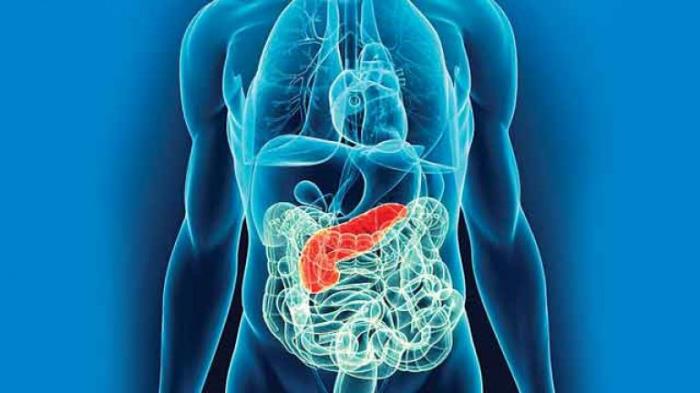Telemedicine has emerged as a revolutionary approach in the healthcare sector, particularly in the follow-up care of patients who have undergone complex procedures such as intestine transplants. This innovative technology enables healthcare providers to deliver care remotely, enhancing patient accessibility and convenience. With the increasing prevalence of chronic illnesses and the need for continuous monitoring, telemedicine serves as a vital tool in ensuring that patients receive timely interventions and follow-up consultations.
Medical disclaimer: This content is for general awareness and does not replace a doctor’s consultation. For diagnosis or treatment decisions, consult a qualified specialist.
Importance of Follow-Up Care After Intestine Transplantation
Follow-up care is critical for patients who have undergone an intestine transplant. It plays a significant role in monitoring the patient's recovery, preventing complications, and ensuring the success of the transplant. Regular follow-up appointments allow healthcare providers to assess the function of the transplanted organ, manage medication regimens, and address any emerging health issues. Effective follow-up care can significantly improve patient outcomes and quality of life.
How Telemedicine Facilitates Intestine Transplant Follow-Up
Telemedicine facilitates intestine transplant follow-up by offering a platform for virtual consultations, which can be particularly beneficial for patients living in remote areas. Through video conferencing, healthcare providers can evaluate the patient’s condition, review laboratory results, and adjust treatment plans without requiring the patient to travel long distances. This approach not only saves time but also reduces the burden on healthcare facilities.

Types of Telemedicine Services for Post-Transplant Care
Several types of telemedicine services are available for post-transplant care, including video consultations, remote monitoring, and mobile health applications. Video consultations allow for real-time interaction between patients and healthcare providers, while remote monitoring tools enable continuous tracking of vital signs and health metrics. Mobile health applications can provide educational resources and medication reminders, enhancing patient engagement and adherence to treatment plans.
Benefits of Telemedicine for Intestine Transplant Patients
The benefits of telemedicine for intestine transplant patients are manifold. It enhances accessibility to healthcare services, minimizes travel-related stress, and allows for timely medical interventions. Additionally, telemedicine can lead to better patient satisfaction, as individuals can receive care from the comfort of their homes. This approach also promotes continuity of care, which is crucial for managing the complex needs of transplant patients.
Challenges of Implementing Telemedicine in Transplant Care
Despite its advantages, implementing telemedicine in transplant care faces several challenges. These include technological barriers such as internet connectivity issues, especially in rural areas, and the need for healthcare providers to be trained in using telemedicine platforms. Moreover, some patients may feel uncomfortable with virtual consultations, preferring face-to-face interactions. Addressing these challenges is essential for maximizing the benefits of telemedicine in transplant care.
Patient Education and Telemedicine in Follow-Up Care
Patient education is a critical component of follow-up care, and telemedicine can enhance this aspect significantly. Through telehealth platforms, healthcare providers can deliver personalized educational materials, discuss medication adherence, and provide dietary guidelines tailored to the patient's needs. Educating patients about potential complications and the importance of follow-up appointments can empower them to take an active role in their health management.
Role of Remote Monitoring in Post-Transplant Care
Remote monitoring plays a pivotal role in the follow-up care of intestine transplant patients. Utilizing wearable devices and mobile applications, healthcare providers can track vital signs, laboratory values, and other health indicators in real-time. This continuous monitoring allows for early detection of potential complications, enabling timely interventions that can significantly improve patient outcomes and prevent hospital readmissions.

Impact of Telemedicine on Patient Compliance and Adherence
Telemedicine has a positive impact on patient compliance and adherence to treatment regimens. By providing easy access to healthcare providers, patients are more likely to attend follow-up appointments and adhere to prescribed medications. Telemedicine platforms can send reminders and alerts for medication schedules, which reinforces adherence. Improved compliance is crucial for the long-term success of intestine transplants and overall patient health.
Integration of Telemedicine in Multidisciplinary Care Teams
Integrating telemedicine into multidisciplinary care teams enhances the coordination of care for intestine transplant patients. By facilitating communication among surgeons, dietitians, pharmacists, and primary care providers, telemedicine ensures that all team members are informed about the patient's progress. This collaborative approach allows for comprehensive care planning and management, addressing the diverse needs of transplant patients effectively.
Legal and Ethical Considerations in Telemedicine
Legal and ethical considerations are paramount in the implementation of telemedicine for intestine transplant follow-up care. Issues such as patient confidentiality, informed consent, and the regulation of telehealth services must be addressed. Healthcare providers must ensure compliance with local laws and guidelines to protect patient information and maintain trust in telemedicine practices. Ethical considerations also include equitable access to telemedicine services for all patients.
Future Trends in Telemedicine for Transplant Follow-Up Care
The future of telemedicine in transplant follow-up care is promising, with advancements in technology paving the way for enhanced patient experiences. Innovations such as artificial intelligence, machine learning, and improved telehealth platforms are expected to improve diagnostic accuracy and patient engagement. As telemedicine continues to evolve, it will likely play an increasingly vital role in the management of transplant patients, offering more personalized and efficient care.
Patient Experiences with Telemedicine in Follow-Up Care
Patient experiences with telemedicine in follow-up care have generally been positive. Many patients appreciate the convenience of virtual appointments, which reduce travel time and associated costs. Feedback indicates that patients feel more comfortable discussing their health concerns from home, leading to more open communication with healthcare providers. However, some patients still express a preference for in-person visits, highlighting the need for a balanced approach to telemedicine.
Cost-Effectiveness of Telemedicine in Transplant Care
Telemedicine can be a cost-effective solution for intestine transplant follow-up care. By reducing the need for in-person visits, telemedicine minimizes travel expenses and associated costs for both patients and healthcare systems. Additionally, the early detection of complications through remote monitoring can prevent costly hospitalizations. As healthcare systems strive for efficiency, telemedicine emerges as a viable option for improving care while managing costs.
Telemedicine and Access to Specialist Care for Transplant Patients
Telemedicine significantly enhances access to specialist care for intestine transplant patients, particularly those residing in underserved areas. Through virtual consultations, patients can connect with transplant specialists without geographical limitations. This increased access ensures that patients receive expert care and guidance, which is essential for managing complex post-transplant issues. Telemedicine thus bridges the gap between patients and specialized healthcare providers.
Technological Innovations Supporting Telemedicine in Healthcare
Technological innovations are at the forefront of supporting telemedicine in healthcare. Advancements in video conferencing technology, secure messaging platforms, and mobile health applications have transformed the way healthcare is delivered. These innovations not only facilitate communication between patients and providers but also ensure the security and confidentiality of patient information. As technology continues to evolve, telemedicine will likely become even more integrated into standard healthcare practices.
The Role of Multidisciplinary Teams in Intestine Transplant Care
Understand the importance of multidisciplinary teams in ensuring successful intestine transplant outcomes. This blog highlights their collaborative approach to patient care.
Addressing Graft-Versus-Host Disease in Intestine Transplants
Learn how to manage graft-versus-host disease (GVHD) in intestine transplant patients. This blog provides insights into treatment strategies and prevention techniques.
Training Healthcare Providers for Effective Telemedicine Practice
Training healthcare providers for effective telemedicine practice is essential for maximizing the benefits of this approach. Providers must be equipped with the necessary skills to navigate telehealth platforms, communicate effectively in virtual settings, and engage patients in their care. Continuous education and training programs can help healthcare professionals stay updated on best practices and emerging technologies, ensuring high-quality care for transplant patients.
Best Intestine Transplant in India
The Best Intestine Transplant in India offers a vital treatment option for patients with severe intestinal failure, combining advanced surgical techniques and comprehensive post-transplant care.
Best Intestine Transplant Hospitals in India
The Best Intestine Transplant Hospitals in India are equipped with cutting-edge technology and multidisciplinary teams, ensuring seamless patient care and successful transplant outcomes.
Intestine Transplant Cost in India
The Intestine Transplant Cost in India is competitively priced, providing access to world-class treatment with transparent pricing and comprehensive care packages.
Best Intestine Transplant Surgeons in India
The Best Intestine Transplant Surgeons in India are highly skilled and experienced, ensuring precise surgical interventions and personalized patient care for optimal recovery and long-term success.
FAQs on Telemedicine in Intestine Transplant Follow-Up Care
What is telemedicine and how does it relate to intestine transplant follow-up care?
Telemedicine refers to the use of technology to provide healthcare services remotely. In the context of intestine transplant follow-up care, it enables patients to have virtual consultations with their healthcare providers, facilitating ongoing monitoring and management of their condition.
What are the main benefits of using telemedicine for follow-up care?
The primary benefits include increased accessibility to healthcare services, reduced travel costs, improved patient satisfaction, and timely medical interventions. Telemedicine also enhances patient education and adherence to treatment regimens.
Are there any challenges associated with telemedicine in transplant care?
Yes, challenges include technological barriers such as internet connectivity issues, patient discomfort with virtual consultations, and the need for healthcare providers to be trained in using telemedicine platforms effectively.
How can telemedicine improve patient compliance with treatment?
Telemedicine can improve patient compliance by providing easy access to healthcare providers, sending medication reminders, and facilitating regular follow-up appointments, which reinforce adherence to prescribed treatments.
What future trends can we expect in telemedicine for transplant follow-up care?
Future trends may include advancements in artificial intelligence, machine learning, and improved telehealth platforms, leading to enhanced diagnostic accuracy and more personalized patient care.
Post-transplant infections are a significant concern and require vigilant management to ensure successful outcomes. Key strategies include antimicrobial prophylaxis, regular monitoring for signs of infection, and prompt treatment of any infections that arise. Patients must adhere to strict hygiene practices, avoid exposure to potential sources of infection, and attend all follow-up appointments for ongoing assessment and care. Early detection and intervention are crucial to prevent complications and improve long-term survival rates. Managing Infections After Intestine Transplant Surgery
Intestine transplantation is a surgical procedure that replaces a diseased or damaged small intestine with a healthy one from a donor. This procedure is typically considered for patients with irreversible intestinal failure, where the intestines cannot adequately digest food and absorb essential nutrients, fluids, and electrolytes. Conditions that may necessitate an intestine transplant include short bowel syndrome, Crohn's disease, severe motility disorders, and complications from total parenteral nutrition (TPN). Intestine transplantation can significantly improve the patient's quality of life and overall health by restoring normal digestive function. Understanding Intestine Transplantation for Complex Digestive Disorders
Graft-versus-host disease (GVHD) is a significant complication that can occur after intestine transplantation. It happens when the donor's immune cells recognize the recipient's tissues as foreign and attack them. Managing GVHD involves a combination of immunosuppressive medications to control the immune response, biopsies to diagnose and monitor the condition, and supportive care to manage symptoms such as diarrhea, abdominal pain, and skin rashes. Early detection and intervention are crucial for improving outcomes and preventing severe complications. Addressing Graft-Versus-Host Disease in Intestine Transplants